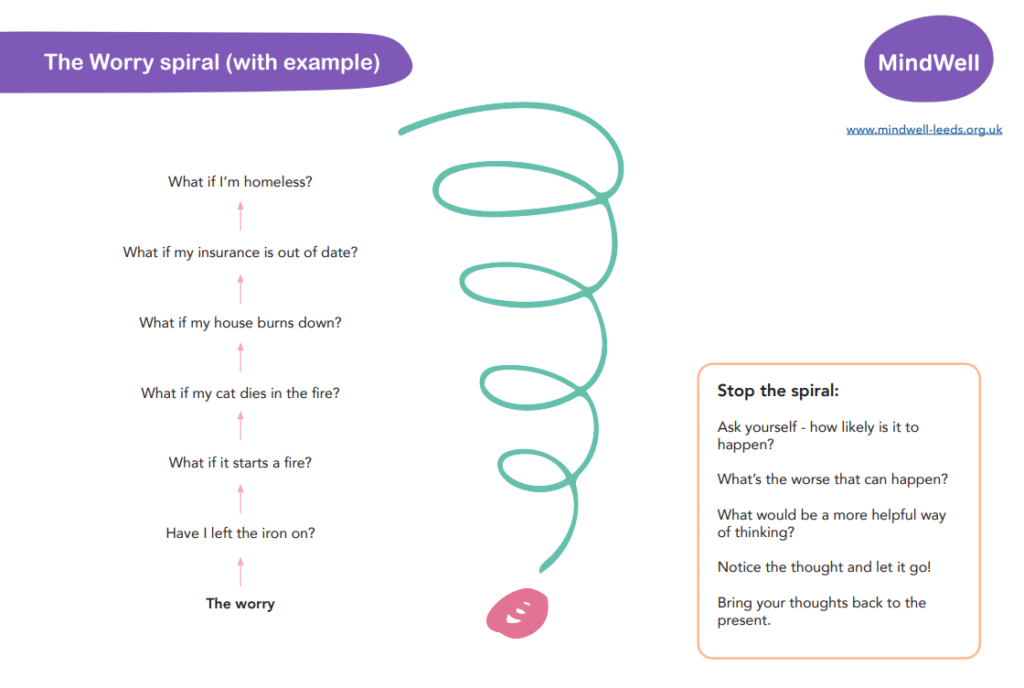There are always going to be times in life when things happen that cause us to worry. So what is worry? How does it work? What can you do to manage it?

Worry and Problematic Worry
When we worry it is viewed as a verbal mental problem solving technique that our brains use to make sense of, and solve what may be perceived as potentially negative events – in the future.
Normal worry is generally short term, and hopefully leads to positive problem-solving behaviours. Worry becomes unhelpful when it is about a number of things, is very frequent and is difficult to control or dismiss.
Prolonged or frequent worry generates more anxiety and more worry, which may actually prevent positive problem solving, as it can seem overwhelming – that situation where you can’t see the wood for the trees!
What causes us to worry? What are the triggers?

Worrying can be triggered by anything, some might be more obvious than others. We can all remember 9/11 and the awful media images. External triggers might come from a news article, a conversation, an image or a situation.
Some triggers may be internal, we have all had that moment where we thought ‘what if?’ ‘What if I left my straighteners on? What if I haven’t locked the door? Focusing on the ‘what if’ question, chasing the thought and trying to work out whether they are turned off, will cause worry and you are likely to catastrophize to the point of the house burning down. If the thought is, ‘I probably did turn it all off,’ the thought will fade and the worry will also fade.
What maintains worry?
There are two types of thought about worry which maintain the worry; positive beliefs and negative beliefs. Unhelpful behaviours also maintain the worry, e.g. avoidance and thought control.
Read more about how positive and negative beliefs about worry contribute to maintaining the worry cycle here.
The Worry Spiral below shows how one small thought can spiral out of control and gives you help to keep these worries under control.

For more mental heath and wellbeing support, visit the Tenancy Support area of our website.
